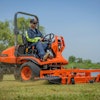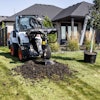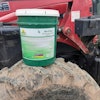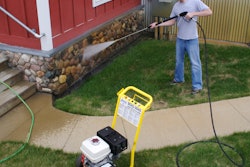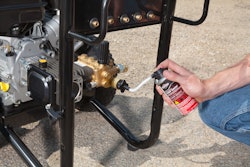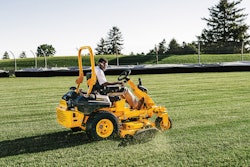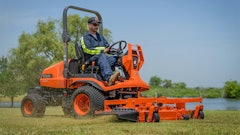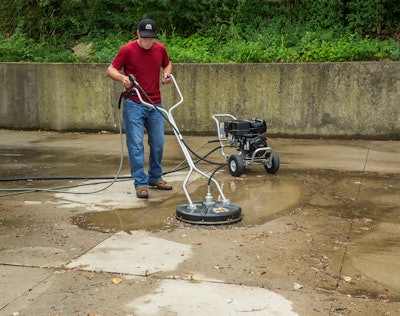
As winter approaches, it’s important to remember to winterize pressure washers before freezing temperatures hit.
“It’s a thing that's overlooked too often in the industry. People forget about it, but it is critical,” says Nate Abrahams, senior sales trainer at Karcher. “You put a pressure washer in the back of a truck, and it's 30 degrees out and you're going down the highway: It's going to freeze in a matter of minutes. Winterizing pressure washers is really easy to do once you've done it once or twice. People just need to make sure they remember, or they could have a $7,000 machine that needs $3,000 worth of work when it freezes.”
Abrahams and Kevin Anstoetter, national rental division manager at Mi-T-M, discuss what green industry professionals need to know about winterizing pressure washers.
How to do it
There are several different techniques professionals can use to winterize their pressure washers.
“Whether it be a cold or hot water pressure washer, they should be winterized. The fear of a hot water pressure washer freezing is the heating coil,” says Anstoetter. “That's an expensive mistake if it does freeze. If that freezes, they normally will burst; the coil itself will expand enough where it'll actually rupture. If you have a cold water pressure washer, there's a chance you can bust the pressure washer head, crack the aligner or mess up the packing.”
One technique involves users blowing all the water out of the pressure washer.
“While blowing it out, some people will actually start the pressure washer to run it for a few minutes, but if they do that, there's always that residual water that's sitting in that pressure washer, so before you start it, you have to bring it into a warm environment and make sure all that leftover water is through before you start it,” Anstoetter says.
Another method is to introduce an antifreeze product into the machine. If using an antifreeze product, it needs to be introduced in every place water would touch, including the pump, bypass loop, accessories, hose and trigger gun.
“That means you’re going to introduce antifreeze where you would normally have the water hookup, and that would then replace all of the water in the system and make it completely protected. If it's a trailer system, that would include the water tank itself,” Abrahams says. “I would recommend that they stick with either RV antifreeze or automotive antifreeze. Some people use windshield washer fluid, and that can work, but it's not great for the seals inside of that pump. I prefer automotive because RV antifreeze tends to turn into a slush and you have to let it basically unclog before you can pump it out, whereas automotive antifreeze is always liquid.”
Many manufacturers also provide winterizing kits that introduce a product into the system to keep it from freezing.
Some people who live in warmer areas choose not to winterize their pressure washers and simply store them in a warm location. However, professionals should keep an eye on the weather to make sure freezing weather is not ahead.
“Now, for example, in Texas, they typically don't have to worry about winterizing, but if you remember last year, they got that severe storm,” Abrahams says. “There were hundreds and hundreds of machines that were frozen last year during that power outage and deep freeze they got. So, a lot of service work had to be done for a lot of customers.”
For people who live in colder areas, Abrahams says winterizing the machines around Halloween is usually a safe bet.
All in all, the process doesn’t take very long.
“If it’s your first time, it will take maybe 15 minutes. If you’ve done it before on a traditional machine, like the mobile unit that I train on every day, I can have that machine done in less than five minutes, probably closer to two,” Abrahams says.
Anstoetter recommends that people winterizing pressure washers lean on the manual if in doubt about the process.
Other maintenance tips:
- Watch the oil levels and the oil in the pump itself. If you see the oil turning a milky color, change it immediately.
- If you happen to see any water leaking from underneath the head of the pump, that's an indication that there's possibly a cracked liner or maybe the packings are going bad.
- Check the pumps, valves and ceramic liners.
- Make sure the correct nozzles are being used and that the gun isn’t leaking anywhere.
- Check the pressure washer hoses to ensure there are no leaks or scrapes. If you start to see damage, take it out of service and replace it.
Editor's Note: This article was originally published in Rental, Green Industry Pros' sister publication

